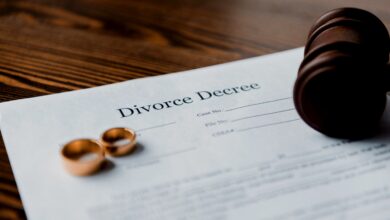Injured in a Car Accident in Florida? Legal Steps to Take

Getting injured in a car accident in Florida can turn your life upside down. From dealing with medical bills to navigating complex insurance policies, it’s overwhelming to know where to begin. If you’ve recently been hurt in a collision on Florida’s roads, it’s crucial to understand the legal steps you need to take to protect your health, your rights, and your financial future. Florida’s unique no-fault insurance laws and its high rate of auto accidents make it essential to act quickly and wisely.
Understanding Florida’s No-Fault Insurance System
Florida is a no-fault insurance state, meaning that after a car accident in Florida, each driver’s own insurance policy pays for their medical expenses, regardless of who caused the crash. This is handled through Personal Injury Protection (PIP) coverage, which is mandatory in the state. Every Florida driver must carry at least $10,000 in PIP coverage.
This system was designed to reduce litigation and speed up the claims process, but it has limitations. PIP only covers 80% of your medical expenses and 60% of lost wages, up to the policy limit. It also doesn’t cover non-economic damages like pain and suffering. That’s where knowing your legal rights becomes critical, especially if your injuries are severe.
Step 1: Seek Immediate Medical Attention
The first thing you must do after any car accident in Florida is seek medical care. Even if you feel fine initially, internal injuries or delayed symptoms can develop. In Florida, you must receive medical treatment within 14 days of the accident to be eligible for PIP benefits. Failure to do so may result in your claim being denied.
Make sure to document all treatments, diagnoses, prescriptions, and follow-up visits. This medical record will be essential in both your insurance claim and any potential lawsuit.
Step 2: Report the Accident
Under Florida law, you’re required to report a car accident in Florida to the police if it results in injury, death, or property damage over $500. In most cases, calling 911 at the scene is the best course of action. The police will file a crash report, which becomes a vital piece of evidence when filing insurance claims or pursuing legal action.
Always get a copy of the accident report and verify that it includes accurate information. This can help support your case if there are disputes later on.
Step 3: Gather Evidence at the Scene
If you’re physically able, start collecting evidence immediately after the car accident in Florida. This includes:
- Taking photos of the scene, vehicle damage, and visible injuries
- Recording witness contact information
- Noting road conditions, traffic signals, and weather
This documentation can make a significant difference in determining fault and supporting your claim.
Step 4: Notify Your Insurance Company
After a car accident in Florida, you must inform your insurer as soon as possible, even if you were not at fault. Provide them with honest and factual information, but avoid giving a recorded statement without legal counsel. Insurance adjusters may use your words against you to minimize your payout.
If the at-fault driver’s insurer contacts you, you are not obligated to speak with them. It’s usually best to consult an attorney first to avoid jeopardizing your case.
Step 5: Consult a Car Accident Attorney
When dealing with injuries, property damage, and the emotional toll of a car accident in Florida, it’s in your best interest to consult a personal injury lawyer. Florida laws are complex, and an experienced attorney can help you understand your rights, file a lawsuit if necessary, and negotiate with insurers on your behalf.
A qualified lawyer can also determine whether your injuries meet Florida’s “serious injury threshold,” which allows you to step outside the no-fault system and file a personal injury lawsuit for damages beyond PIP coverage. These include:
- Significant and permanent loss of a bodily function
- Permanent injury
- Significant and permanent scarring or disfigurement
- Death
Step 6: File a Personal Injury Claim
If your injuries qualify, your attorney can help you pursue compensation through a personal injury claim against the at-fault driver. Compensation in these cases may cover:
- Medical expenses not covered by PIP
- Future medical costs
- Lost wages and reduced earning capacity
- Pain and suffering
- Emotional distress
- Property damage
The statute of limitations for filing a personal injury lawsuit after a car accident in Florida is typically four years from the date of the accident. However, you should act quickly, as delays can hurt your case or lead to lost evidence.
Step 7: Understand Comparative Negligence
Florida follows the legal doctrine of “pure comparative negligence,” meaning that even if you were partially at fault for the car accident in Florida, you can still recover damages. However, your compensation will be reduced by your percentage of fault. For example, if you were found to be 30% at fault, your total compensation would be reduced by 30%.
Having a skilled lawyer on your side can help minimize the percentage of fault attributed to you and maximize your compensation.
Step 8: Document Everything
In every stage following a car accident in Florida, documentation is your best friend. Keep a file with:
- Police reports
- Medical records and bills
- Insurance correspondence
- Witness statements
- Repair estimates
- Proof of lost income
These documents can serve as solid evidence in both insurance negotiations and legal proceedings.
Step 9: Beware of Early Settlement Offers
After a serious car accident in Florida, the at-fault driver’s insurance company may offer you a quick settlement. While it might seem tempting—especially if you’re facing mounting medical bills—it’s often far below what your claim is actually worth.
Never accept a settlement without reviewing it with a legal professional. Once you accept, you typically waive your right to pursue additional compensation later, even if your injuries worsen or you discover new damages.
Step 10: Take Care of Your Mental Health
A car accident in Florida can have psychological effects that last longer than physical injuries. Many accident victims suffer from anxiety, PTSD, or depression after a traumatic crash. Don’t hesitate to seek professional help. Mental health treatment is also a recoverable cost in personal injury claims.
Special Considerations for Tourists and Out-of-State Drivers
Florida’s warm climate and popular attractions draw millions of tourists each year. If you were injured in a car accident in Florida while visiting from another state or country, the legal process can become even more complicated. You may be unfamiliar with Florida laws, and your insurance policy may have limitations on out-of-state claims.
In these situations, hiring a local attorney who understands Florida traffic and personal injury law becomes even more critical.
What If the Other Driver Is Uninsured?
Despite mandatory insurance laws, many drivers involved in a car accident in Florida are uninsured or underinsured. In such cases, you can turn to your own Uninsured/Underinsured Motorist (UM/UIM) coverage if your policy includes it. This coverage helps pay for medical bills, lost income, and other expenses when the at-fault driver lacks sufficient insurance.
If you don’t have UM/UIM coverage, your legal options are more limited, but an attorney can still explore ways to recover compensation.
Injured as a Passenger or Pedestrian?
If you were a passenger or pedestrian involved in a car accident in Florida, you still have legal rights. As a passenger, you may be covered under the driver’s PIP policy, or you might use your own if you own a vehicle. As a pedestrian, your PIP coverage may still apply if you have an auto insurance policy in Florida. Otherwise, the at-fault driver’s policy becomes the focus of your claim.
Either way, it’s crucial to seek legal guidance to ensure you are not unfairly denied benefits or compensation.
How a Car Accident Lawyer Can Help You
Having a dedicated car accident attorney can make a significant difference in the outcome of your case. Their role includes
- Investigating the accident
- Collecting evidence
- Communicating with insurance companies
- Evaluating the value of your claim
- Negotiating settlements
- Representing you in court, if necessary
Many personal injury attorneys in Florida work on a contingency fee basis, meaning they only get paid if you win your case. This allows you to access legal help without any upfront costs.
Conclusion
If you’ve been injured in a car accident in Florida, time is of the essence. The steps you take immediately after the accident can impact your ability to recover compensation and return to normal life. By seeking medical attention, reporting the accident, documenting your injuries, and working with a qualified attorney, you put yourself in the best possible position to recover both physically and financially.
Florida’s laws are unique, and the stakes are high. Whether you’re dealing with a minor fender bender or a life-altering collision, don’t navigate the aftermath of a car accident in Florida alone. Understanding your rights and the legal process is the first step to protecting your future.











